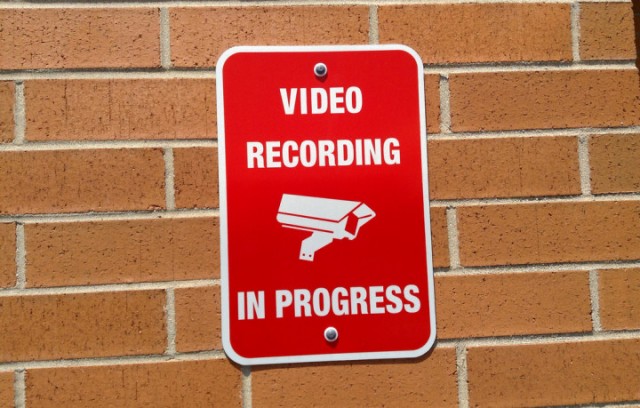They said police and the community as a whole could benefit from a volunteer surveillance camera registry, which could make data more readily available to authorities.
While crime reports overall in Berkeley have been relatively flat in recent years, robberies, burglaries and assaults have risen, according to the most recent overview from the department.
The council members said the registry could be a good alternative to a city-run network, which would be prohibitively expensive and potentially raise even more questions about privacy rights.
Similar systems have already been set up in Chicago, Philadelphia, San Leandro, Fremont and Vallejo, they wrote. And San Jose is debating whether to implement its own database.
In Fremont, which started its registry in 2012, authorities say it has been a success, and point to a 20% reduction in burglaries since its inception, according to the council report. Vallejo, which launched its program in May, is the most recent of the bunch. Vallejo’s mayor told KTVU he believes the database could help the city’s struggling police force, which faced staffing cuts after Vallejo declared bankruptcy in 2012.
Wozniak said Tuesday night that the database is only a concept at this point, and stressed that it would be completely voluntary. It would include locations and contact info only, and would not give police access to streaming video.
Not surprisingly, given Berkeley’s history of political activism and a skeptical attitude toward law enforcement, the proposition was met with strong opposition by citizens in the audience Tuesday night.
Berkeley resident David Welsh compared the proposed database to a “network of informants,” adding that “the surveillance state… [is] a creepy thing and it’s coming on us at a very fast pace.”
Another Berkeley man, who identified himself as Jim, agreed: “We need to stop handing off our individual power to the police.” Several speakers referenced the ongoing revelations about the scope of the National Security Agency’s programs to spy on American citizens.
Alison Bernstein, an attorney who serves on the city’s Police Review Commission, said she saw the proposal as “a solution…looking for a problem.” She said police can already subpoena video footage when they need it, and that officers seem to be able to track down cameras, as it is, to solve crimes.
Speakers also wondered whether the database would be available to citizens via a public records request, and asked what sort of ramifications that might have. City officials did not have an answer, but said it was something staff could investigate.
Going forward, said Councilman Jesse Arreguín, it will be critical to balance privacy rights with the potential benefits of setting up the database. He asked Wozniak to limit the circumstances when police could ask for footage to the most serious crimes, and requested that the proposal be sent to the city’s Police Review Commission for review.
Wozniak agreed to both suggestions.
Berkeley Police Capt. Andrew Greenwood said in December that good video footage, wherever it comes from, can be extremely useful during an investigation. It can help identify suspects, and provide effective evidence during prosecution.
“Our officers and investigators are aware that businesses and residences often use video surveillance,” he said. “It’s become a routine investigative step to look for video of crimes being committed, and high quality video and photographs can provide details which can be very helpful to a case.”
In recent months, police have spoken about the possibility of working with the owners of local liquor stores and buildings near crime hotspots, such as Strawberry Creek Park, about installing surveillance cameras to crack down on crime.
Private cameras at a West Berkeley liquor store helped solve at least two homicides last year, said Councilwoman Linda Maio on Tuesday night. And surveillance footage also played a role in catching the alleged culprits in Berkeley’s only homicide thus far in 2014.
Maio said she’s sensitive to privacy issues, but has also seen what threats to public safety have done to her constituents.
“I can tell you this,” she said. “I was very sensitive to my neighbors who came out who were petrified that people were murdering people in the street in front of their houses.”
Sgt. Chris Stines, president of the Berkeley Police Association, agreed the database would contribute to public safety more than it would harm individual privacy.
“The footage is already there,” said Stines this week. “The information is already being recorded, so it’s not a greater invasion of people’s personal privacy rights…. It just adds a level of organization that makes sense.”
The council voted 7-1-0, with Max Anderson in opposition and Kriss Worthington absent, to send the proposal on to the city manager and Police Review Commission for further study.
Anderson said Tuesday night saw the proposal as a very slippery slope. He referenced the “national security state,” and added: “You’re lucky if you can walk out your door without being observed, tracked. There’s not much of the Fourth Amendment left.”
